Description
ABSTRACT
Advancing the Cause of Fintech in Nigeria through Regulation
Tolu Olatunji*
Technology has always influenced the finance industry and consumers do their best to keep up with the times. Up till the very early 2000s, it took banks some days to transfer money between bank accounts in different states in Nigeria. Today, most of these banks now have mobile applications by which you can open a fully functional bank account, invest, make purchases without visiting a banking hall, seeing, or touching money physically. With the aid of technology, the idea of banking and even money itself has changed drastically. Major innovations such as peer-to-peer lending, cryptocurrencies, smart contracts, algorithmic lending, online crowdfunding, among others are changing how consumers and producers of financial services transact. Generally, FinTech has democratised and revolutionised the financial services industry. Conventional banks are just a part of the stakeholders in the finance and technology space as there is now a proliferation of startups and other new entrants. Information technology (IT), e-commerce firms, online crowdfunding, faster payments and online lending websites and other applications have fragmented the financial services market. FinTech creates new financial, technological, and legal realities, significantly disrupting existing regulatory frameworks and system of law. This paper will first discuss the growth of FinTech in Africa so far and the challenges of regulation generally. The second part will appraise the current position of FinTech laws and regulations in Nigeria, while the third part will discuss the future of FinTech regulation in Nigeria, concluding that regulators must be able to ensure that FinTech firms are properly compliant without stifling innovation.
Keywords: Fintech, Regulation, Cryptocurrency, Financial Services, Nigeria.
INTRODUCTION
The words’ Disruption’ and ‘Innovation’ are some of the frequently used words in the tech space. ‘Disruptive innovation’ refers to the creation of new markets and value networks that eventually disrupt existing markets and value networks, displacing established market leaders and alliances.1
* LL.B, BL, MCIArb. Tolu is a seasoned Lawyer, Arbitrator, Mediator, Researcher and Notary Public. He possesses considerable experience as Legal Counsel to financial institutions, other corporate entities and individuals. Tolu is a member of the Chartered Institute of Arbitrators(CIArb) UK, where he serves as a member of the Executive Committee of the Ibadan Chapter of the Institute. He is also a Council member of the Nigerian Bar Association Section on Business Law. He leads Edge Hill Law Practice, a Commercial and Dispute Resolution law firm in Nigeria. Email: ta********@*********aw.com.
- Iris H-Y Chiu, ‘The Disruptive Implications of Fintech – Policy Themes for Financial Regulators’ (Digital Currencies and Finance Conference, Centre for Law, Economics and Society, UCL, Athens, 2016) 1 accessed 23 June 2020.

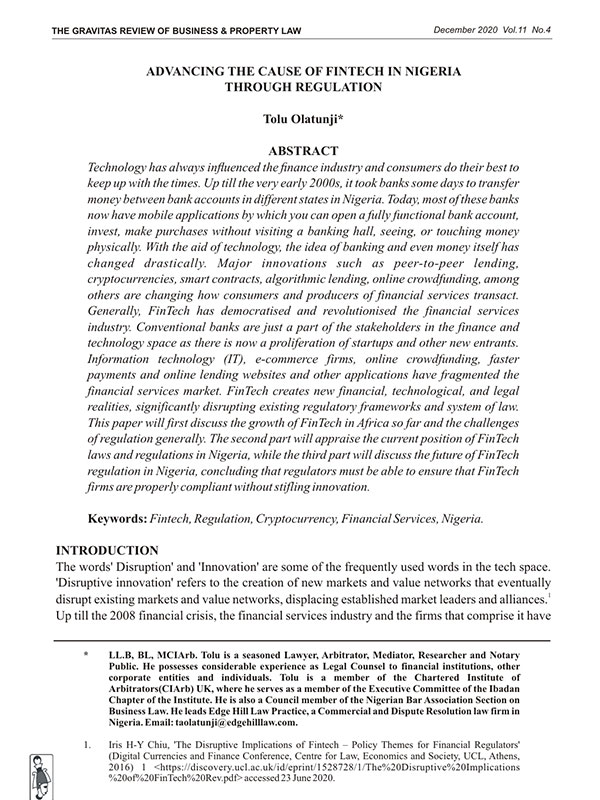
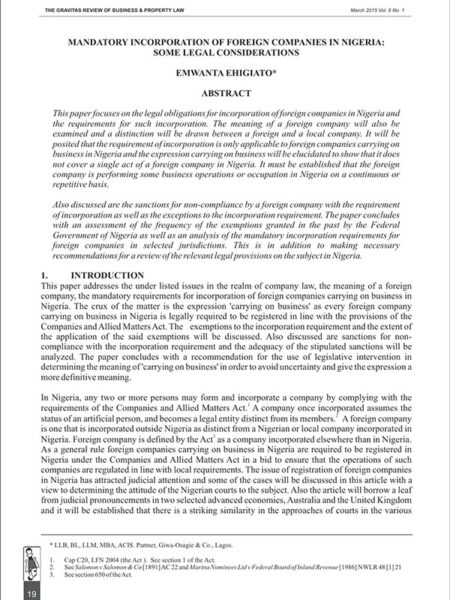
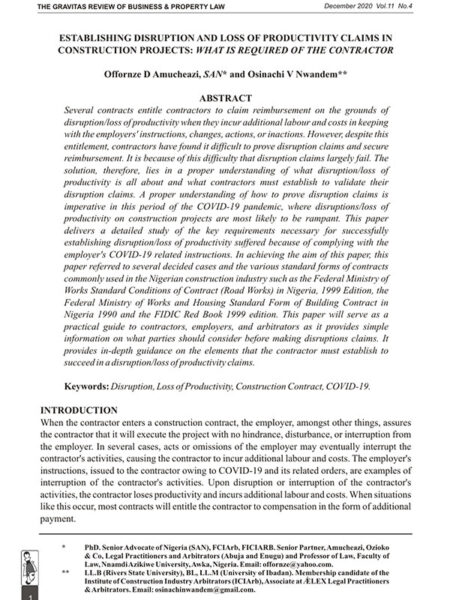
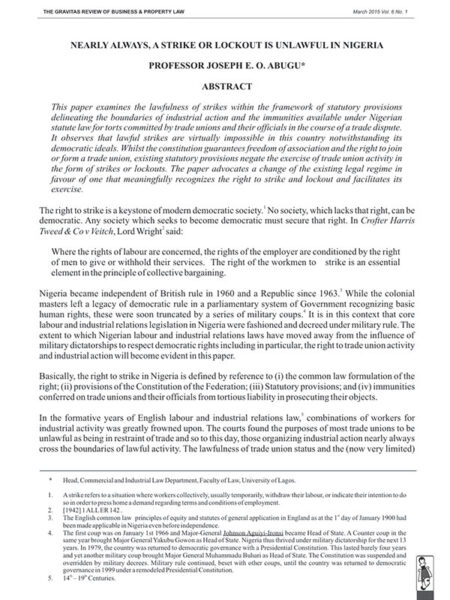
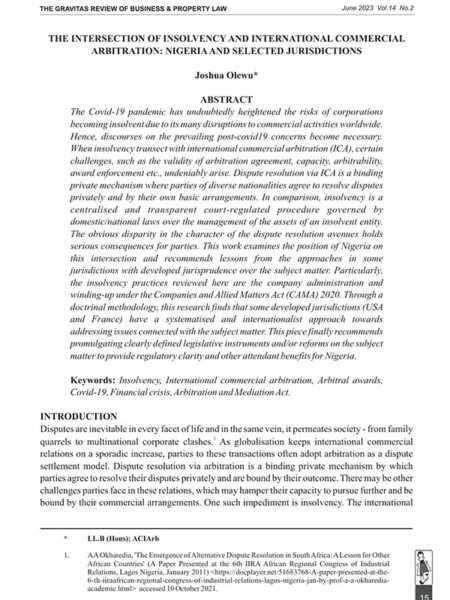


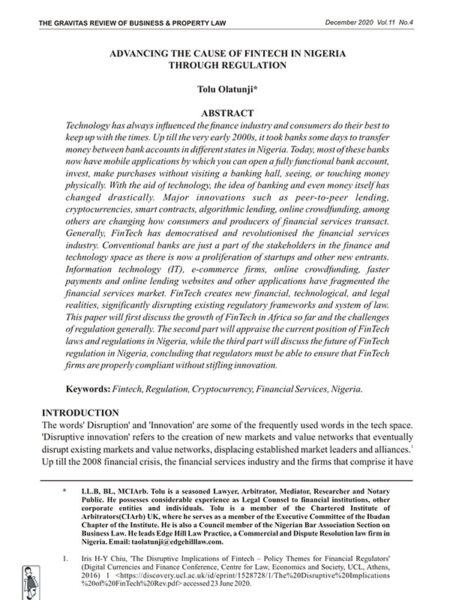
Reviews
There are no reviews yet.